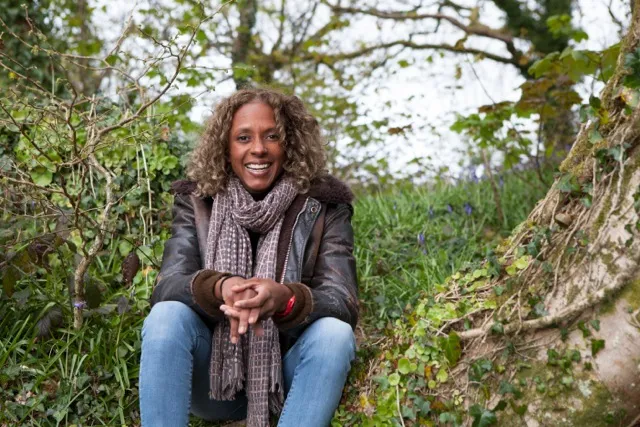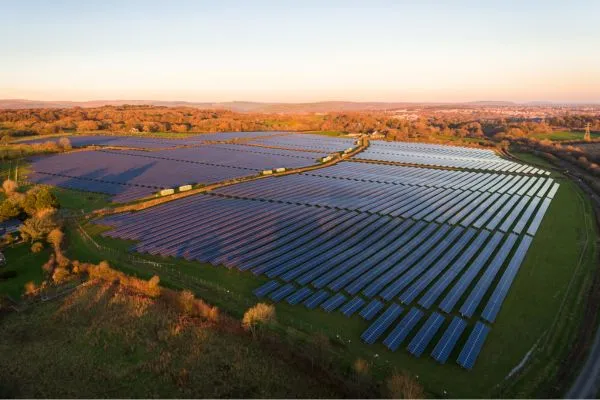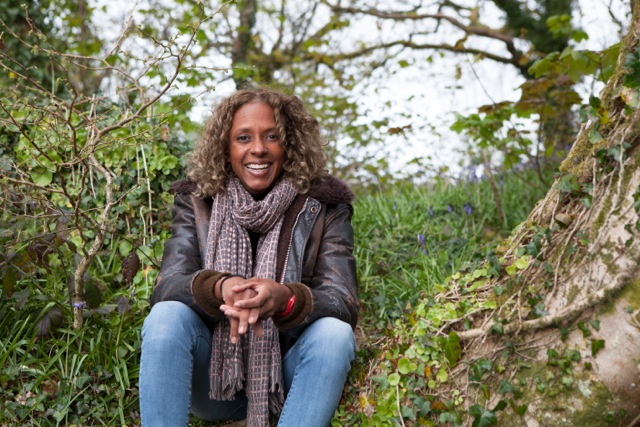The Springwatch presenter suggests it could be time to pause and look at the bigger picture
Something’s changed. I’ve been banging on about climate change since the days we called it global warming, but I feel like I’m being left behind. The thought struck me on the train, as I gazed out of the window at the latest solar farm to appear along the route.

There is a certain irony that these shining symbols of progress and the green energy transition often resemble sterile monocultures – at least to me. They may be fighting the good fight for the climate crisis, but what about the nature crisis?
Research shows that solar farms can bring about biodiversity gains, but these studies are often ‘before-and-after’ scenarios of solar farms located on previously intensively farmed agricultural land. To my mind, this is setting a very low bar, and the question remains: what happens when solar farms are constructed in areas where biodiversity indices are higher up the rung?
Take the proposed solar development on the Gwent Levels, an area described as ‘Wales’s Amazon’ and containing seven Sites of Special Scientific Interest (SSSI).
The developers claim that, due to the panels being above ground, wildlife can be encouraged to the grassland habitat below, yet opponents argue that in practice there is little incentive for solar farm operators to ensure biodiversity targets are actually met.
Scrutiny by Gwent Wildlife Trust of the results of post-construction monitoring at an existing solar site on the Levels – Llanwern Solar Farm – has shown high levels of pollution at a number of locations in the watercourses inside and outside the site, while a 99 per cent reduction in bat activity and local extinctions of the breeding population of lapwings have also been recorded.

The Welsh government is so concerned about the failure of planning conditions to protect the Gwent Levels that it has commissioned a soon-to-be published study looking at the impact of a range of built developments.
Of course, when considering the impact of solar farms on biodiversity, the Gwent Levels represent the extreme end of the spectrum. But with almost 500 solar farms and counting across the UK, the largest of which have as many as 150,000-200,000 solar panels covering 250 acres, it feels as though more scrutiny should be given towards their impact on local wildlife.
Herbicides and fertilisers may be also used to control ‘invasive’ grasses and broadleaf species between and around the panels.
After all, solar farms are highly managed environments where, depending on size and location, a combination of strimming, grazing animals, drones and AI helps to suppress vegetation that might otherwise shade panels and cause damage. Herbicides and fertilisers may be also used to control ‘invasive’ grasses and broadleaf species between and around the panels.
It seems that taking climate action, while racing to meet the growing demands of the energy-hungry digital revolution, risks losing sight of the nature crisis.
Of course, something must be done to ‘save the planet’, but the landscapes often created by solar farms represent a narrow, almost obsessive focus on reducing carbon emissions, while industry and legislators ignore the elephant in the room: the energy demands of a 21st-century lifestyle where we can get virtually anything we want delivered to our doors at the click of a button.
The transformation of landscapes to meet the energy demands of modern life is occurring on a planetary scale – on the land, in the sea and in the skies above. But how far we are willing to go for the sake of convenience and technological innovation? My guess is that this is where I get left behind, because I would say we have gone way too far already.
Find out more
For more opinon pieces by Gillian Burke, read why seeds hold the secret to life, scientific knowledge alone can't save the natural world and her thoughts about slow travel.
